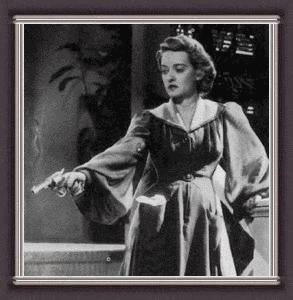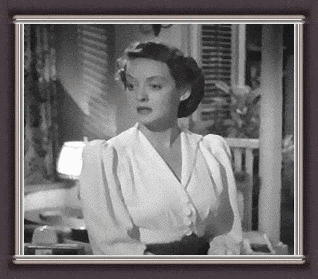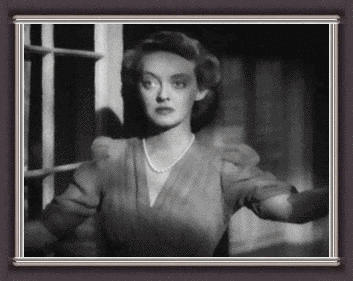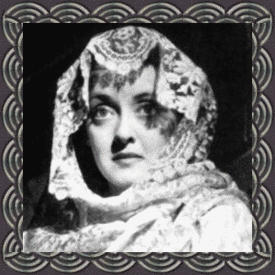


The lawyer then receives word that Hammond's spooky Eurasian widow, played by Gale Sondergaard, has in her possession a letter Leslie wrote to Hammond, asking him to come to visit her at the plantation on the night he was killed. When confronted with this information, Leslie is forced into admitting that she murdered Hammond and that he was her lover. Taking pity on her, Joyce puts his professional reputation on the line and agrees to submit to the widow's blackmail scheme and buy the letter for $10,000. He is approached about the existence of the letter and the accompanying price tag, by an overtly slimy legal assistant, who will receive a share of the money if all goes as planned. Trying to protect his friend Crosbie from the awful truth, he advises him there will be some extra expenses in preparing Davis' case, but not how much money is involved. Though W. Somerset Maugham's story could easily have been filmed as a turgid melodrama, director William Wyler's magnificent handling of the material and Bette Davis's taut and calculated performance converted it into enduring cinematic art. The Letter has stood the test of time, and just as enjoyable today as is was when it was first released. Herbert Marshall (who had played the lover in an earlier version of the story) is excellent as the long-suffering husband. James Stephenson, who was cast lawyer, was a relatively unknown contract player at Warner Brothers. He actually manages to steal scenes from his costars, and was rewarded with a best supporting actor nomination from The Academy for his efforts.


The Letter opens with a gunshot that shatters the stillness of moonlit night of a Malayan rubber plantation. A man staggers out onto the porch, followed by a woman with a gun. She blasts five more shots at him in an emotionless manner. The woman, of course, is Bette Davis. She plays Leslie Crosbie, who's husband, played by Herbert Marshall, is away on business. She immediately claims that Hammond, an old family friend, tried to attack her and that she killed him in self-defense. Leslie's ever faithful husband believes her and asks their lawyer Howard Joyce (James Stephenson), to defend her.


Hammond's widow insists that she will not turn the letter over unless Leslie claims it personally, which leads to the dramatic scene in which Leslie must kneel at her feet to pick up the incriminating document. After Davis is deemed innocent of the murder charge in court and returns home, Marshall discovers that all his savings have been spent to buy the letter and demands to be told what it contains. Leslie admits everything, but the always forgiving Crosbie, now an emotional wreck, tells her he still loves her.
In the climactic final scene of the original story, when all seems as though it might resolve for the best, Leslie breaks down and tells her husband that with all her heart she still loves the man she killed. The censors of the era, never willing to leave well enough alone, make sure that everyone gets whats coming to them. A final scene is tacked on where Leslie walks into the garden, the creepy widow appears with a henchman and her dead husband's mistress is stabbed to death. And of course, the police stop them when they try to flee.



- Bette Davis - Leslie Crosbie
- Herbert Marshall - Robert Crosbie
- James Stephenson - Howard Joyce
- Gale Sondergaard - Mrs. Hammond



- William Wyler - Director
- Robert Lord - Producer
- Howard Koch - Screenwriter
- Tony Gaudio - Cinematographer
- Max Steiner - Composer (Music Score)
- George J. Amy - Editor
- Warren Low - Editor
- Carl Jules Weyl - Art Director
- Hal B. Wallis - Executive Producer
- Jack L. Warner - Executive Producer
- Leo F. Forbstein - Musical Direction
- Orry-Kelly - Costumes/Costume Designer
- Perc Westmore - Makeup
- Dolph Thomas - Sound/Sound Designer


- Best Actress (nom) - Bette Davis - Academy
- Best Cinematography (nom) - Gaetano Gaudio - Academy
- Best Director (nom) - William Wyler - Academy
- Best Editing (nom) - Warren Low - Academy
- Best Picture (nom) - Academy
- Best Score (nom) - Max Steiner - Academy
- Best Supporting Actor (nom) - James Stephenson - Academy
- 10 Best Films (win) - National Board of Review of Motion Pictures







